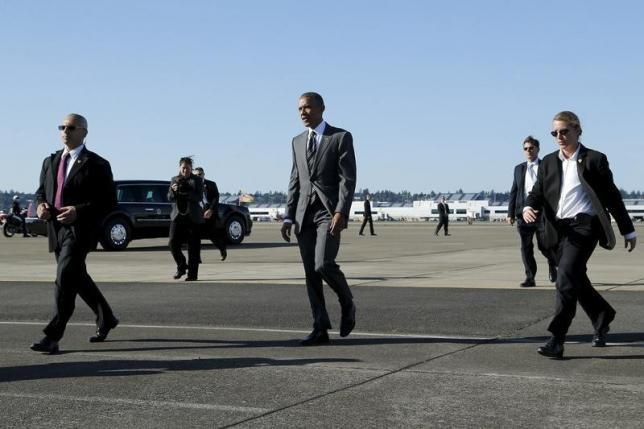Scandal-Tainted US Secret Service To Hire 1,100 Staff, Sources Say: Reuters Exclusive

Facing accusations that it cannot adequately protect the White House, the U.S. Secret Service plans to hire 1,100 more officers and agents for an agency besieged by embarrassing scandals and security lapses, two law enforcement sources with direct knowledge of the plans said.
The addition of 700 uniformed division officers and 400 agents over five years would expand its staff of 6,647 by nearly 17 percent, the biggest hiring increase in more than a decade at the 150-year-old agency whose job it is to protect the president, his family, and senior officials, along with fighting financial crime.
The Secret Service is trying to rebound from a leadership crisis and mend a culture of covering up mistakes that some trace back 12 years to when it was pulled out of the Treasury Department and absorbed into the sprawling new Department of Homeland Security, where it had to compete for turf and money.
The Secret Service confirmed it was "conducting an aggressive hiring initiative over the next few years" but declined to comment on the number of planned hires.
Secret Service spokeswoman Nicole Mainor said the "hiring campaign is the result of attrition, anticipated growth and in response to recommendations" by a panel formed last year after a man jumped the White House fence in September, ran across the lawn and made it into the mansion before he was stopped.
A bill passed in the U.S. House of Representatives in July required the agency to hire at least 200 uniformed division officers and 85 special agents. The law enforcement sources said the expanded five-year hiring would begin at the start of the new fiscal year in October.
The Secret Service first began the work of presidential protection in 1901 after the assassination of President William McKinley. In recent years, its mandate has grown to include investigations of cyber theft, credit card fraud and hacking attacks on financial, banking and telecommunications infrastructure.
Over the past decade, the agency's manpower levels stagnated and its funding increases failed to keep pace with growth in overall federal spending, Secret Service budget data show.
Uniformed division officers are mainly based in Washington and are responsible for the security of the White House and the vice president's residence. Agents, who require more education and training, are assigned to criminal investigations and guarding the president whenever he is in public.
AGENT MISCONDUCT
Allegations involving agent misconduct and security lapses have been piling up, including a March 4 incident in which two senior agents, after a night of drinking, drove into a White House barricade inches away from a suspicious package that was being investigated as a possible bomb.
The agency’s director was not notified of that incident for several days.
The Secret Service has also been criticized as being too insular by an independent panel appointed after an incident in which a knife-carrying man jumped a fence and ran into the White House last September in one of the worst security breaches since President BarackObama took office in 2009.
That led to the resignation of its previous director, Julia Pierson, hired a year earlier to clean up the agency after a 2012 scandal in which agents paid prostitutes and visited strip clubs in Cartagena, Colombia. There was a security lapse in 2011 when a man hit the White House with automatic rifle fire, although the damage was not discovered until four days later.
In 2014, a private security contractor with a gun shared an elevator with Obama in violation of security protocol while he was on a trip to Atlanta.
Joseph Clancy, who has led the service since October, has faced intense pressure by Congress to turn the Secret Service around and address questions over whether its divided mission is diverting attention from providing security for the president.
As part of a turnaround plan, the House of Representatives in July passed the 2015 Secret Service Improvements Act. The bill, which is awaiting Senate approval, would also require more training for Secret Service personnel.
The hiring plan also coincides with a projected 16 percent increase in the Secret Service’s budget to $2.2 billion in the 2016 fiscal year, its biggest budget since entering the Department of Homeland Security.
The agency has also been accused of favoring men in promotions and condoning racism, a point reinforced in a class-action lawsuit filed in 2000 by black agents who accused the Secret Service of a pattern of failing to address allegations of racial discrimination over many years.
Defenders of the Secret Service say criticism of the agency has brewed for years, going back as far as 1981 when a gunman tried to assassinate President Ronald Reagan and it was forced to strengthen security measures.
© Copyright IBTimes 2024. All rights reserved.





















